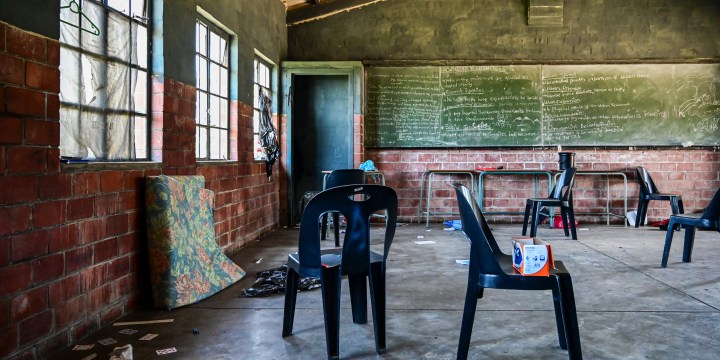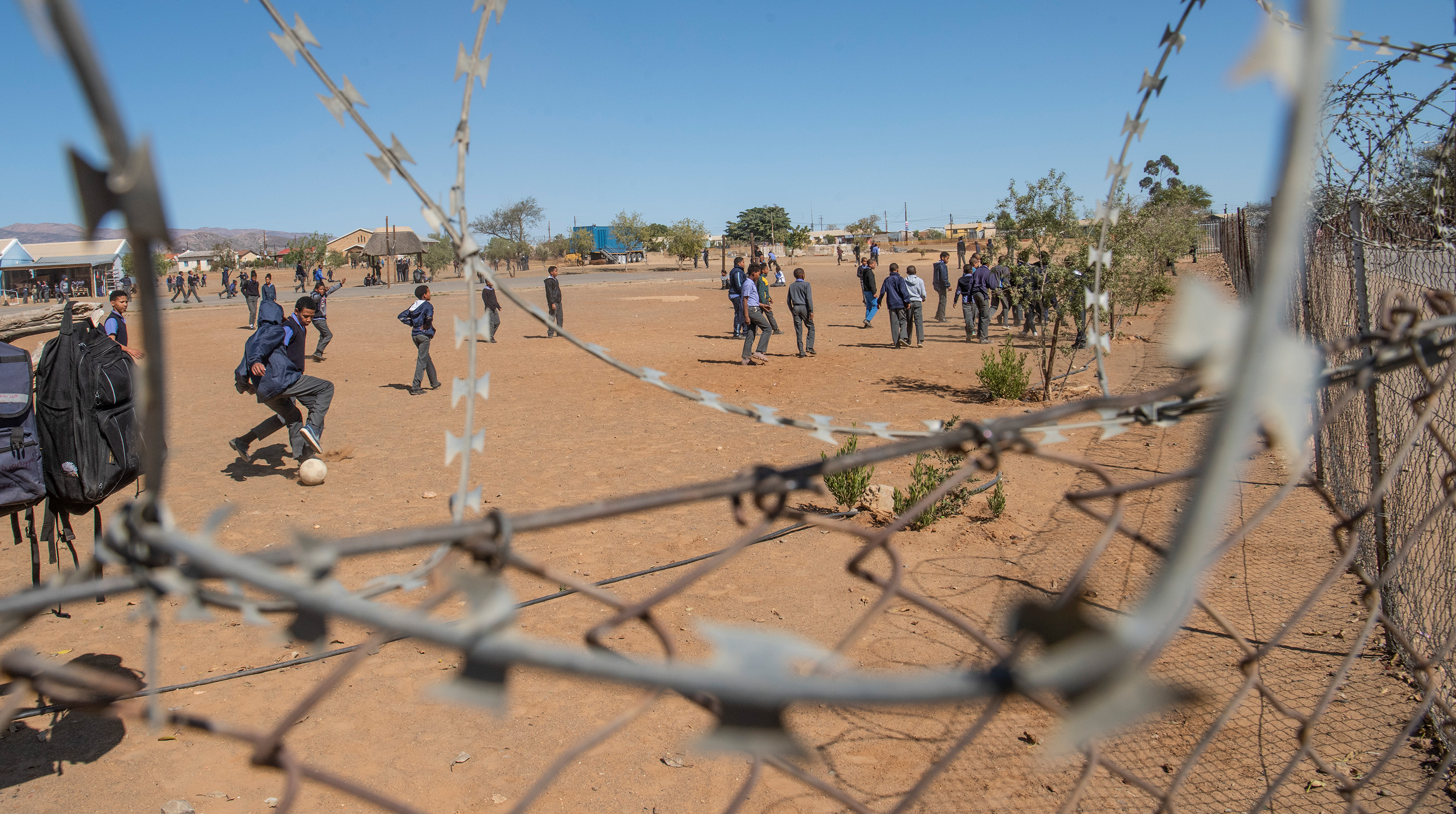UNLEARNT LESSONS OP-ED
Undiagnosed post-conflict trauma is a root cause of problems in South African schools

The poor performance of many of South Africa’s schools can be explained within the context of apartheid, which exposed many to conflict and left the country with a divided education system.
Watching scenes of adults running with injured children in their arms in Gaza hospitals night after night is terrible. There is a danger that we will become desensitised to this tragedy.
“All wars, whether just or unjust, disastrous or victorious, are waged against the child.” Eglantyne Jebb, the founder of Save the Children, uttered these words almost 100 years ago.
Standing up for children who were starving in Germany and Austria because of a blockade imposed by the Allies in the aftermath of World War 1, Jebb challenged powerful governments, including her own in the UK, and started a global movement for protecting children in conflict.
Today in Gaza and in many other parts of the world, children are subjected to unimaginable suffering. They are killed, injured, maimed and raped. They are bombed in their schools and in their homes.
The war in Gaza reminds us that children also suffer the indirect consequences of conflict. Save the Children notes that children living in conflict-affected settings are likely to be out of school or have no access to basic sanitation and clean water, and are more likely to die in childhood because of undernutrition and a lack of medical care.
Read more in Daily Maverick: Israel-Palestine War
It points out that high levels of toxic stress in children who have lived in or fled from war zones can have a lifelong impact on their mental health and development.
The apocalyptic situation in Gaza and the horrific impact of the bombing of people got me thinking about an article written by Dr Martin Prew more than 10 years ago.
In Gaza they cannot even think of schooling or reconstruction before the implementation of a ceasefire. Getting schools going after this destruction and ongoing trauma will take many years.
Our schools deal with a fraction of the trauma in Gaza, but this still needs to be considered. Prew uses the lens of post-conflict trauma to explain why so many of our schools still perform so badly, by international standards.
He notes that opinionated and confident education professionals also struggle to explain why most of South Africa’s schools still perform badly.
He maps the phases we have gone through: Blaming teachers, apartheid, principals, provincial education departments and parents, and acknowledges that “much of the problem can be explained within the context of apartheid, which left South Africa with a deeply divided education system”.
Prew turns to a World Bank education specialist, Peter Buckland, who says in his study of post-conflict schools, “Reshaping the Future”: “Most of the major challenges confronting the post-conflict reconstruction of education systems are the same as those confronting any effort at system reform.”
Prew explores what the roots of the trauma might be in South Africa and observes that rural schools and former homeland school communities were deeply traumatised by forcible relocation and dispossession of all or most of their resources and wealth.
South Africans experienced the loss of land, wealth and respect, and families ended up crowded together with little privacy and few resources. He also notes that South African schools were exposed to varying but often high levels of conflict during the 1980s and early 1990s – and, I would add, 1970s.

South African schools were exposed to varying but often high levels of conflict during the 1980s and early 1990s. (Photo: Brenton Geach)
“However, nothing in the policy discussions then and policy development later acknowledges this fact or makes any provision for a traumatised school system and student population.”
Prew’s metaphor of an ICU is helpful. He argues that you can’t put a seriously ill patient in the general ward and that the ICU would be a more appropriate place: “In ICU the environment is stabilised and patients are protected against sudden movements or temperature changes, while patients in general wards are pushed out of bed… as quickly as possible.
“Following 1994, all schools were treated as if they were in the general ward and had a barrage of changes thrown at them. Most – including all the traumatised ones – reacted predictably.”
Like an ICU patient put in a general ward, they complained, refused to cooperate and eventually started to die.
Read more in Daily Maverick: Call it what it is — the SA education system is in complete ruins
At the same time, the formerly white schools, which were largely untouched by the traumatic experiences during the previous regime, reacted positively to the barrage of new policies and generally adapted them to their own advantage.
This is not to excuse teachers when they act unprofessionally, but it is an explanation of why teachers feel so badly misunderstood and why school communities are so resistant to change.
If we believe that undiagnosed post-conflict status is a root cause of problems in South African schools, this has policy implications and policymakers need to better understand what is happening in our schools.
Nurture schools
Have we become desensitised to the trauma in our own country?
I agree with Prew, who calls for a diagnosis of our schools that must lead to a review of policies to “ensure that they reflect the need to nurture these schools to functionality”.
He argued, 13 years ago, that with the problem ignored, or misdiagnosed, for nearly two decades, rural and township schools are likely to become even more dysfunctional. DM
Dr Mark Potterton works at Dominican Convent School and is the director of the Three2Six Refugee Children’s Education Project.
This story first appeared in our weekly Daily Maverick 168 newspaper, which is available countrywide for R29.





















 Become an Insider
Become an Insider
Sadly no mention is made in this opinion or the article of Dr Prew of the most destructive force in South Africa’s education system namely SADTU. In rural areas SADTU ‘s reason for existence is the protection of drunk lazy teachers who molest little girls. The Apartheid excuse is not on.